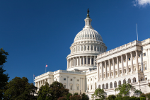House Committee Conducts Hearing on Bill to Kill DOL Fiduciary

The Financial Services Committee held a hearing on Thursday to discuss a legislative proposal introduced by Rep. Ann Wagner (R-MO) that would repeal the Department of Labor’s fiduciary rule and create best interest standards of conduct for brokers. The bill also seeks to impose enhanced disclosure obligations on broker-dealers and gives the SEC rulemaking authority on the content of the disclosures.
Rep. Randy Hultgren (R-IL), a supporter of Rep. Wagner’s proposed legislation, echoed the stance of rule detractors claiming that the fiduciary rule would hurt his lower income constituents’ ability to save for retirement by making such advice cost prohibitive. “If we are going to institute a fiduciary standard then we need to do it right,” he said.
House Democrats opposed the draft claiming that Rep. Wagner’s bill would harm investors and that the fiduciary rule is necessary to protect retirement savers from conflicted investment advice given by advisors that receive high commissions for the products they recommend.
“The rule advances a very simple principle. If you are giving investment advice to retirement savers and you are being compensated for your advice then you have to put your customers’ interests first,” said ranking committee member Rep. Carolyn Maloney (D-NY) in her opening statements.
“This is just common sense and no one would oppose this principle. We should also remember that most investors already think it is the law even though it isn’t. So really the DOL rule is really updating the law to reflect what investors already think is the law.”
Douglas Holtz-Eakin, president of American Action Forum, testified that businesses that implement the rule will be forced to incur significant costs associated with the changes to business practices, which will be passed on to small retirement savers who will bear the brunt of the rule.
He noted that the AAF tracks the costs of all federal regulations, and the fiduciary rule topped that list at $31.5 billion plus another $2 billion annually in compliance costs, which he noted is the second most expensive non-environmental rule enacted since 2015.
The hearing also included testimony from David Knoch, president of 1st Global speaking on behalf of the Financial Services Institute; Mark Halloran, senior director and head of industry and regulatory strategy at Transamerica; Jerome Lombard, president of the Private Client Group at Janney Montgomery Scott; and Cristina Firvida, director of Financial Security and Consumer Affairs at AARP.
All of the panelist gave their support for the best interest standard as outlined in Rep. Wagner’s discussion draft, except Firvida who called the legislation “too vague.”
Firvida was also the sole detractor when asked if the SEC should take the lead on the fiduciary rule, noting that investors benefit from the expertise of both the DOL and SEC. She also disagreed with the other witnesses when asked if robo-advisors are better at giving advice than actual people.
“We have estimated that the cost of conflicted advice…was costing savers five years worth of retirement income, which is unacceptable,” said Firvida. “Because conflicted advice is not free. There is a cost to regulation – we recognize that. There is a cost to enforcement – we recognize that. But there is also a cost to conflicted advice. It is not free.”
The FSI spokesperson suggested five changes to the rule, including streamlining the best interest contract, creating a best interest standard that is applicable to all investors, revising and broadening the reasonable compensation rules, revising rules for IRA rollovers, and expanding the rule’s grandfathering provisions.
Portions of the fiduciary rule went into effect on June 9th while full implementation is slated for January 1, 2018.